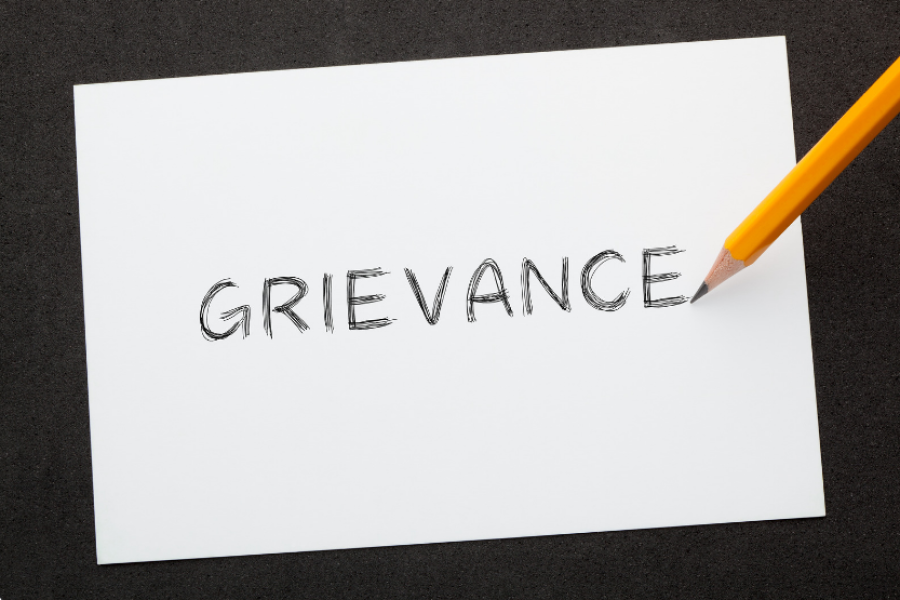Blog

Blog
Call us today for a free initial consultation on 0800 772 0341
How an employer should investigate a grievance
Published 15 August 2022

A substandard grievance investigation can destroy a working relationship and have disastrous consequences, it is why getting it right is essential.
The decision by any employee to submit a formal grievance is not usually one that they will take lightly [1 cited 15.8.22]
They may have cause to complain over a one-off incident they consider serious, or it may be the culmination of a number of things.
Whatever the reason it can be an incredibly difficult, emotionally draining and unsettling time for a worker who finds it necessary to raise a formal grievance at work [2 cited 15.8.22]
The individual may also be fearful they will lose their job, especially if the grievance is against a manager or senior member of staff.
It is why it is vital that you as an employer provide meaningful support for all of those involved in or affected by a grievance investigation.
With a grievance investigation you should seek to find out all that you reasonably can about the complaint.
It will help to establish if there is any case to answer, ensure fair treatment and that evidence is gathered fairly. It will also help you to determine the appropriate and fair way to respond to a grievance.
ACAS have produced a step-by-step good practice guide for investigating a grievance [3 cited 15.8.22]
The investigation should be conducted without delay, ideally by the person who hears the grievance.
You should structure the investigation and make an investigation plan. It should focus on what needs to be investigated, identifying witnesses and any sources of evidence e.g. records, emails or CCTV recordings and any other points or information.
A clear investigation plan can help to make the process as quick and easy as is possible, establish exactly what needs to be done and ensure the process is fair.
It is important in any investigation that you are reasonable and objective, adhere to any workplace policies and gather as much information as is possible.
Where there are witnesses the investigator should take witness statements and get them signed and dated.
The accuracy of information gathered from witnesses can often be disputed. It is always a good idea to voice record interviews with the permission of the person being questioned.
The investigator should not rule out reinterviewing the employee who has submitted the grievance or any witnesses if more information or clarification of points is needed.
A report containing recommendations should be produced at the conclusion of the investigation and it should be shared with the employee.
It is imperative with any grievance investigation that you are able to demonstrate to the employee you have conducted a thorough, robust and fair investigation.
A failure to do so can lead to an appeal against a grievance outcome and a justifiable loss of trust and confidence in you as an employer.
As uncomfortable as it may be for you to have to deal with a formal complaint within the workforce, you must get it right, investigate it properly and fairly.
You should have a policy that informs all staff of what is involved in the grievance process.
Where practicable always attempt to resolve a grievance informally.
If the matter has to be dealt with formally, arrange a grievance hearing in order to hear the complaint. It will help you to fully understand it and what is required to settle it to the satisfaction of the employee.
Any worker invited to a formal grievance hearing has a statutory right to be accompanied by a trade union representative or colleague [4 cited 15.8.22]
Given the emotion involved for the individual raising a grievance, the companion can often provide clear and concise information, which can greatly assist you to see the point of the grievance and in establishing exactly what you need to investigate.
If someone has a disability they may ask to be accompanied at a grievance hearing by a family member or trusted friend. Give such a request careful consideration, as it can be considered a reasonable adjustment [5 cited 15.8.22]
A reputation built on success
If you're facing any of the issues in this article - or need guidance on disciplinary, grievance, or redundancy matters - call us today. Our expert Trade Union Representatives are available to represent you in crucial workplace meetings, with pay as you need support.